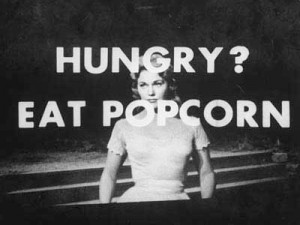There is something rather disturbing about the idea that our actions could be influenced by ideas slipped into our unconscious mind. It’s therefore not surprising there was uproar in 1957 when the New York-based Subliminal Projection Company claimed to be able to boost sales by slipping subliminal messages into adverts. At a press conference, the company unveiled the results of an experiment set up in a local cinema, where the slogans “Drink Coke” and “Eat Popcorn” had been slipped into a film, appearing for less than a thousandth of a second. According to the company, while no one noticed the insertions, Coke sales went up 18% and popcorn sales zoomed by well over 50%. In the resulting storm of protest, psychologists condemned the experiment as “nightmarish” and broadcasting regulators moved to ban all subliminal methods.
In the UK, such adverts are still specifically forbidden under the terms of the 1990 British Broadcasting Act. However, the subject still rears its head from time to time. In the 2000 US presidential campaign, Republicans were accused of slipping the word “rats” into a television advert featuring images of Al Gore (they denied the charge, and claimed it was simply part of “bureaucrats”).
Despite the outrage engendered by these supposed assaults on our free will, there is no evidence suggesting subliminal adverts are any more effective than conventional ones. While the brain can certainly detect messages that are too fleeting for conscious recognition, any response to them still has to enter the conscious mind, which retains the ultimate power of veto.






You must be logged in to post a comment.